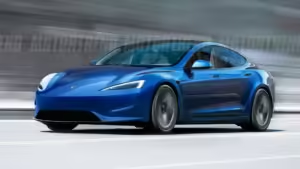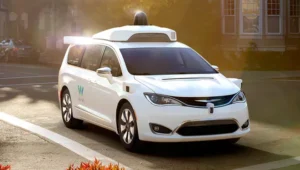Smart cars, also known as connected cars or self-driving cars, use cutting-edge technologies such as artificial intelligence (AI), the Internet of Things (IoT), and advanced sensors to improve safety and efficiency. Improves driver and passenger comfort. This essay explores the concept of smart cars, their features, benefits, and challenges, and provides examples of notable models on the market.

Smart car definition and characteristics:
Smart cars are vehicles with advanced computing and connectivity capabilities that allow them to communicate with other vehicles, infrastructure, and the environment. The main features of smart cars are:
1. Autonomous driving: Intelligent cars can operate with varying degrees of autonomy, ranging from driver assistance systems to full self-driving capabilities. These systems use AI algorithms and sensor fusion technology to recognize and interpret the vehicle’s surroundings, allowing it to navigate the road safely and efficiently.
2. Connected Services: Smart cars are connected to the internet, enabling a wide range of services such as real-time traffic updates, remote diagnostics, over-the-air software updates, and integration with smart home devices.
3. Advanced safety systems: Smart cars are equipped with advanced safety features such as collision avoidance systems, lane departure warnings, adaptive cruise control, and automatic emergency braking. These systems use sensors, cameras, and radar to detect potential threats and reduce risk.
4. Improved user experience: Smart cars offer a variety of features that improve the user experience, such as voice-controlled assistants, infotainment systems with internet connectivity, personalized settings, and integration with smartphones and other devices. To do.
Advantages of smart car:
1. Improved safety: Smart cars use advanced safety systems and autonomous driving features to reduce the risk of accidents and improve road safety.
2. Increased efficiency: Self-driving technology optimizes routes, reduces congestion, and improves fuel efficiency, leading to shorter travel times and lower emissions.
3. Convenience: Connected services and advanced features such as remote diagnostics and over-the-air updates make owning and maintaining a smart car more convenient. 4. Accessibility: Autonomous driving technology has the potential to improve mobility for people with disabilities and reduced mobility, allowing greater independence and freedom of movement.
Challenges and considerations:
1. Regulatory hurdles: The proliferation of smart cars faces regulatory challenges around safety standards, liability issues, and the integration of autonomous vehicles into existing transportation infrastructure.
2. Cybersecurity risks: Smart cars are vulnerable to cybersecurity threats such as hacking and malware attacks, which can put the safety and privacy of passengers and other road users at risk.
3. Ethical and legal considerations: Automated driving raises ethical issues related to decision-making in potentially life-threatening situations. There are also legal considerations regarding liability for accidents involving autonomous vehicles.
4. Public perception: Public acceptance of smart cars can be influenced by factors such as trust in the technology, concerns about driver turnover, and cultural attitudes toward autonomy and control.
Smart car example:
1. Tesla Model S: The Tesla Model S is a luxury electric sedan with advanced self-driving features, including Tesla’s Autopilot system. It offers a variety of connectivity services, including over-the-air software updates and Tesla’s Supercharger network.
2. Waymo Chrysler Pacifica: Waymo, a subsidiary of Alphabet Inc. (Google’s parent company), has developed a self-driving minivan based on the Chrysler Pacifica platform. Waymo’s self-driving cars have undergone extensive testing and are considered some of the most advanced in the industry.

3. Audi A8: The Audi A8 is a luxury sedan equipped with Audi’s Traffic Jam Pilot system, which enables Level 3 autonomous driving in certain traffic situations. It also offers connected services such as Audi Connect, which provides real-time navigation and information services.
4. Nissan Leaf: The Nissan Leaf is an electric hatchback equipped with Nissan’s ProPilot Assist system, which offers semi-autonomous driving features such as adaptive cruise control and lane departure warning. He also offers connected services such as his NissanConnect EV, which allows owners to remotely monitor and control their vehicles.
In summary, smart cars represent a significant technological advancement that has the potential to change the way we travel and interact with vehicles. With advanced features, benefits, and challenges, smart cars are poised to revolutionize the automotive industry and usher in a new era of mobility. As technology evolves and regulatory frameworks adapt, smart cars will become more commonplace on roads around the world and will shape the future of transportation for generations to come.